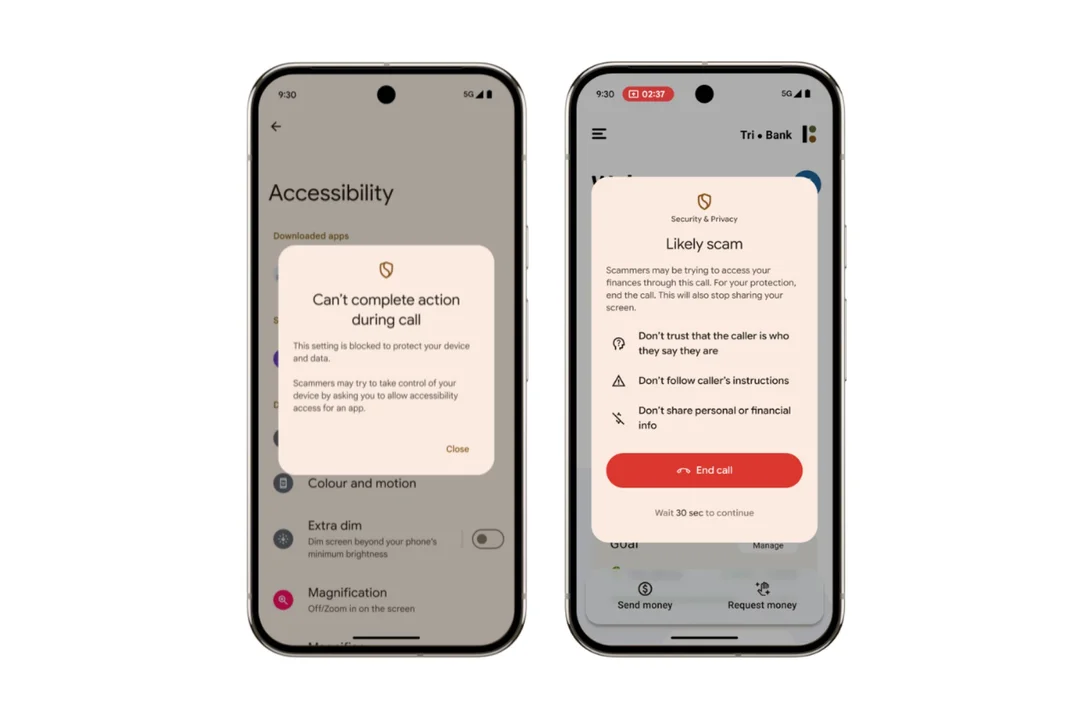
Android Bolsters Security Against Scammers with New Anti-Fraud Features
Google is rolling out a suite of new security features for Android devices aimed at combating the rising threat of phone call and text message scams. These updates provide enhanced protection against malicious apps, screen-sharing fraud, and phishing attempts, ensuring a safer mobile experience for users. With scammers employing increasingly sophisticated tactics, Google is stepping up its game to safeguard user data and prevent financial losses.
Protecting Against Malicious Apps and Accessibility Permissions
One of the key features is the automatic blocking of app sideloading from web browsers, messaging apps, or other services while users are on a call with an unknown contact. This prevents scammers from tricking users into downloading malicious apps. Furthermore, Android will now prevent users from granting accessibility permissions to apps during phone calls.

A warning message will be displayed: "This setting is blocked to protect your device," emphasizing that scammers may attempt to gain control of devices by requesting accessibility access.
Combating Screen-Sharing Scams
Another significant update targets screen-sharing scams, where fraudsters impersonate banks or government agencies to coerce victims into performing harmful actions, such as bank transfers. Google is testing a feature that discourages users from opening banking apps while sharing their screen on a call.

A pop-up warning will appear, stating “likely scam,” and provide an “end call” button. If users choose to proceed, they'll face a 30-second delay, potentially disrupting the scammer's attempts.
AI-Powered Scam Detection in Google Messages
Building upon its existing AI-powered scam detection in Google Messages, the company is expanding the technology to identify more types of fraudulent texts. This includes scams related to phony toll road billing messages, crypto scams, financial impersonation scams, and more. The system analyzes conversations for red flags like poor grammar, urgent language, and suspicious links, alerting users to potential threats.

“We’ve just been hearing from users like constantly that this is a problem,” said Sameer Samat, Google’s Android ecosystem president, highlighting the urgency of these updates.
Verification Keys and Enhanced Device Security
Furthermore, Google is adding verification keys to the Google Contacts app, enabling users to authenticate the identity of the person they are communicating with, ensuring end-to-end encrypted conversations. Stolen device protection is also being enhanced, making it more difficult for thieves to use a reset device without proper authorization.
These updates reflect Google's ongoing commitment to protecting its users from ever-evolving scamming techniques. By implementing proactive measures and leveraging AI capabilities, Android aims to create a safer and more secure mobile environment.
What are your thoughts on these new security features? Do you feel they will effectively deter scammers? Share your opinions and experiences in the comments below!